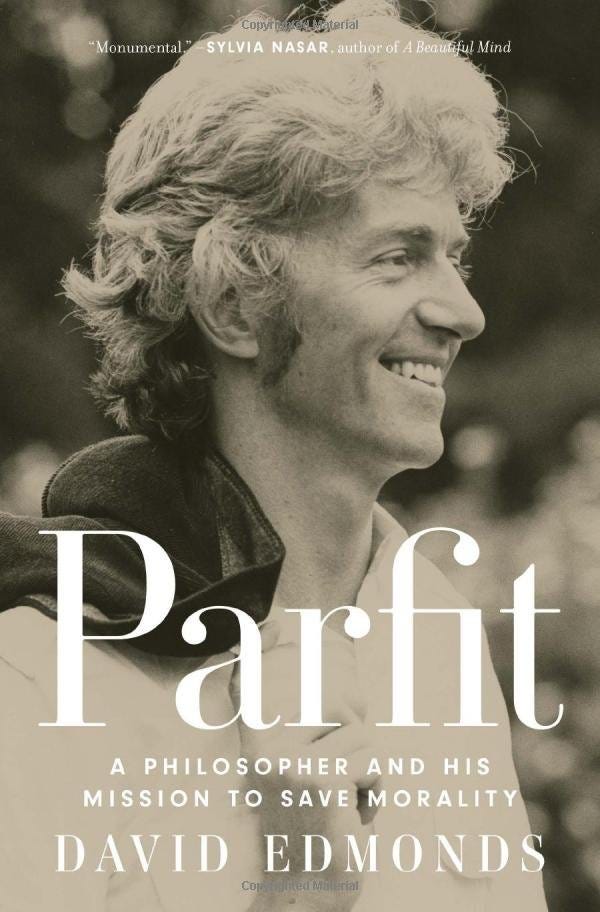Derek Parfit and the implications of extraordinary talent
I recently finished David Edmonds’ biography of Derek Parfit, who made seminal contributions to personal identity, population ethics, the philosophy of the future, and a range of other topics. I quite enjoyed this book. In addition to being an influential philosopher, Parfit was a special, interesting person.
One of the key themes of the book is Parfit’s extraordinary talent. In school, he was consistently at the top of his class. Edmonds gives numerous examples of his precocious verbal ability at a young age. He wrote this at age eleven:
One thing I can never understand is how in all modern adventure stories written for children, the young boy hero always awakes at the crack of dawn and, the moment he opens his eyes, leaps out of bed, with as much vigour as a fresh springbok, and immediately rushes over to the window, flings wide the shutters, letting in a cold draught of damp morning air, as if he was half suffocated. This I have never, or ever will do.
But though the young Parfit already showed signs of the extraordinary talent he came to reap the fruits of, his character was different from what it would become. As a young person, he was relatively sociable and cultivated many conventional interests. But with time, he shed most of them in the pursuit of philosophy. He wore the same outfits and ate the same food. He avoided most social events, dedicating almost all of his time to his work.
Interestingly, Edmonds argues that Parfit’s talent, and his awareness of it, played a key role in these developments.
Perhaps Parfit made a clear-headed choice. He decided that there were certain fundamental questions and that he was in the small category of people with the intellectual capacity to make progress on the answers. This was a privilege, but also a burden. The need to make progress weighed upon him. The urge to convince others weighed upon him. The fear of time running out weighed upon him.
//
Parfit sacrificed the ingredients that for most people make up a good life—the simple pleasures to be derived from family, friends, play, food, love. Because he had to climb the mountain from all sides, he missed out on so much—on walks in bluebell woods, on lounging on a beach and feeling sand between his toes, on nursing a glass of wine in companionship with people he liked, on joyful occasions such as birthday parties and weddings. ‘Ordinary’ people believe that these are among the things that matter.
//
We do not need to adopt Parfit’s narrow view about what matters in order to realize that forfeiting the things that other people find fulfilling is a risky strategy. If the work produced is of seminal value, then the life devoted to it might reasonably be judged as worthwhile, in spite of its self-sacrifice. But if it is not, then it will seem wasted and impoverished. Readers can turn to Parfit’s work, and reach their own verdict. My own view, and the reason I wrote this book, is that his gamble paid off.
It’s a striking idea: that Parfit might have felt that his special talent implied that he ought to develop a special personality.
But Parfit’s talent didn’t just transform his own personality. It also greatly affected the way he was treated by British society. He got a King’s Scholarship at Eton and went on to Oxford, where he won the prestiguous seven-years All Souls Prize Fellowship at age 24. He stayed on at the pure-research All Souls College until retirement, without ever getting a degree in philosophy. Throughout his life, British society showed great confidence in him—including at times when he hadn’t produced much, meaning they had to trust the judgements of peers who vouched for him—and gave him the best help they could offer. This special treatment is maybe especially striking to me as a Swede, since this isn’t how things are done in Scandinavia.
While one can discuss the details, overall there is a logic to the British strategy. Some people are extraordinary talented, and can go on to create great things. Not all of them succeed, but if only some do, special investments can turn out to have been worthwile. Just like Parfit took a personal gamble, so British society took a gamble by investing in him. And just like Parfit’s own, Britain’s gamble paid off handsomely.




